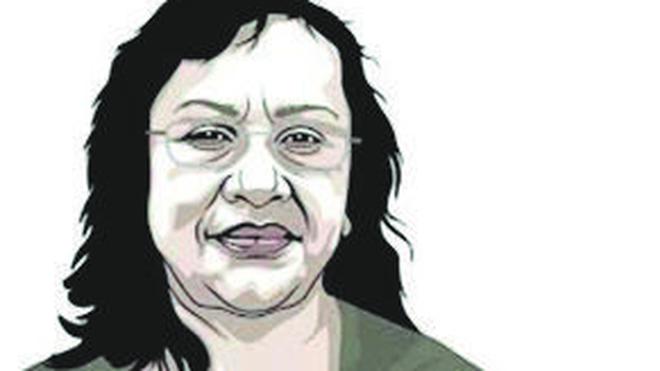Meghalaya’s Mukhim: From editor’s desk to reformist activism.

In the verdant hills of Meghalaya, amidst its mists and mysteries, stands a figure emblematic of resilience and reform. Patricia Mukhim, a journalist and activist, has not only shaped the narrative of this Northeastern state but also fought tirelessly for the rights of its marginalized communities. Her story is one of courage, controversy, and an unwavering commitment to justice.
A Voice for the Voiceless
Patricia Mukhim’s journey began in the challenging terrains of journalism. As the editor of The Shillong Times, she used her platform to spotlight the critical issues facing Meghalaya—from environmental degradation to the rights of indigenous people. Mukhim’s work has been pivotal in promoting the Khasi matrilineal society while advocating for necessary reforms to empower women within this framework [1][2].
Battling for Environmental Justice
Mukhim’s fervent activism extends to environmental conservation, a cause close to her heart given Meghalaya’s rich natural heritage. Her relentless campaign against illegal coal mining and deforestation highlights her commitment to preserving the ecological balance of the Khasi Hills. She has consistently advocated for sustainable practices that protect the environment while supporting local communities’ livelihoods [3][4].
Confronting Communal Violence
Mukhim’s most defining battles, however, have been against communal violence and xenophobia. In a bold stance, she has confronted the deep-seated prejudices facing non-tribal communities in Meghalaya. Following an attack on non-tribal boys in 2020, Mukhim’s outcry was not just vocal; it was a catalyst for legal and social scrutiny, drawing attention to the broader implications of such violence. Her writings urge for a society where multicultural coexistence is not marred by historical grievances [5][6].
Legal Repercussions and the Fight for Free Speech
Patricia Mukhim’s outspoken nature has not been without consequence. She has faced legal challenges, including charges under Section 153A for allegedly inciting communal disharmony through her candid Facebook posts. Yet, the Supreme Court’s decision to quash the FIR against her affirmed her right to free speech, setting a precedent for journalistic freedom in India [6].
Furthermore, her critique of the judiciary for perceived self-serving actions led to a contempt of court charge, culminating in a significant fine. This incident underscored the tensions between governance and the press but also highlighted Mukhim’s resilience. She remains undeterred, continuing her advocacy with the same zeal [7].
Legacy and Ongoing Impact
Despite these challenges, Mukhim’s influence extends beyond journalism. She has founded We Care, an NGO committed to fostering peace and resolving conflicts through dialogue and understanding. Her efforts in peacebuilding have significantly contributed to reducing militancy and promoting reconciliation in Meghalaya [2][3].
Mukhim’s accolades, including the prestigious Padma Shri, underscore her significant contributions to social activism and journalism. Her relentless pursuit of truth and justice continues to inspire a new generation of activists and writers, not just in Meghalaya but across India and beyond [1][2].
Patricia Mukhim’s life and work are a testament to the power of resilience and the impact of steadfast dedication to societal welfare. Her story is not just about the battles fought and won but about the ongoing war against injustice and inequality—a reminder that change is possible, one fearless voice at a time.
References:
1. Patricia Mukhim - Wikipedia.
2. Patricia Mukhim - Humans of Northeast India.
3. Global Freedom of Expression - Columbia University.
4. Patricia Mukhim - Veethi.
5. The New Leam.
6. Global Freedom of Expression - Columbia University.
7. Scroll.in.
8. Image credits - thehindu
Comments
Post a Comment